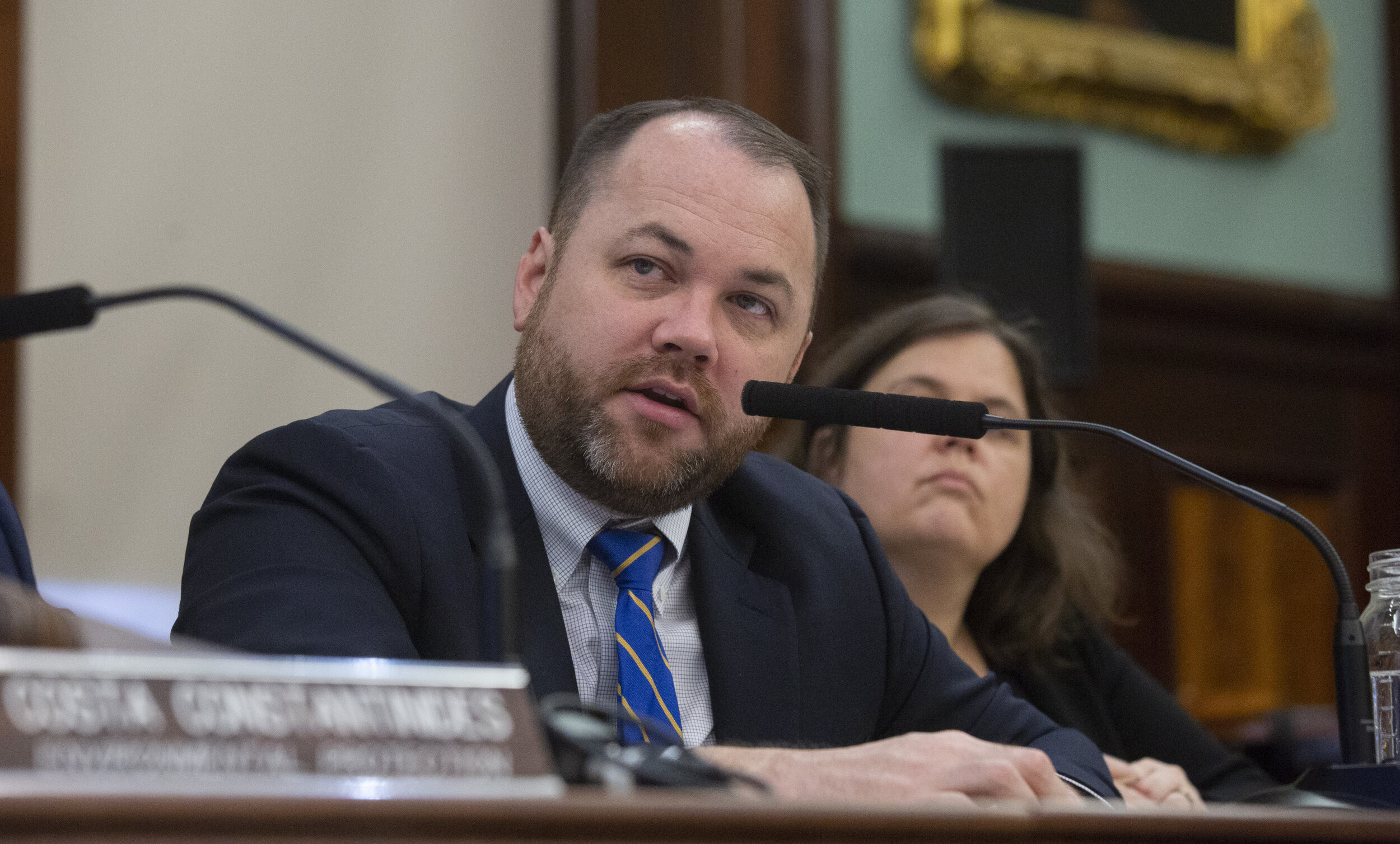City ponders what’s next for Rikers Island
/Speaker Corey Johnson joined the Environmental Protection Committee for a hearing on the future of Rikers Island. Photo by John McCarten via City Council/Flickr.
By Victoria Merlino
The notorious Rikers Island jails are set to close in 2026. But, in a city where property is so valuable, what will become of land beneath them?
Queens Councilmember Costa Constantinides, who chairs the City Council’s Environmental Protection Committee and represents Rikers Island, argued at a committee hearing Wednesday that the city should turn the island into a renewable energy powerhouse.
Constantinides, who sponsors the Renewable Rikers Act, said the proposal would remove wastewater and power plant pollution from low-income communities of color in Queens and elsewhere in the city.
“Every time rich communities need more electricity to run air conditioners, smart TVs and iPads, these plants in low-income neighborhoods kick on,” he said. “The worst imaginable toxins a human’s lungs can handle settle in the chests of kids who live in the Queensbridge Houses. They develop asthma or other illnesses so wealthier homes can stay a comfortable 65 degrees during our increasingly hot summer.”
The Renewable Rikers Act is actually a package of three components: One measure would turn over control of the island to the Department of Environmental Protection, another would authorize studies to determine whether the island could host a wastewater treatment plant and the third would determine the feasibility of specific renewable energy resources on Rikers.
The City Council voted to close Rikers and build community-based jails in four of the boroughs last fall, reigniting the conversation on what would happen to the 400 acres of public land on which the jails sit.
Daniel Zarrilli, the chief climate policy advisor for Mayor Bill de Blasio, announced at the hearing that de Blasio would soon issue an executive order that will outline how the city will receive input from the public on what purpose Rikers Island should serve next.
“With the full closure of the jail complex, 400 acres of public land will become available for repurposing, creating a truly remarkable, once-in-a-generation opportunity to reimagine a Rikers Island that serves all New Yorkers and turns the page on a painful history,” Zarrilli said.




